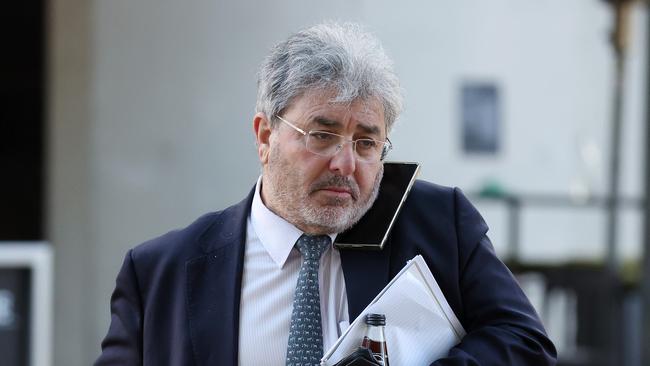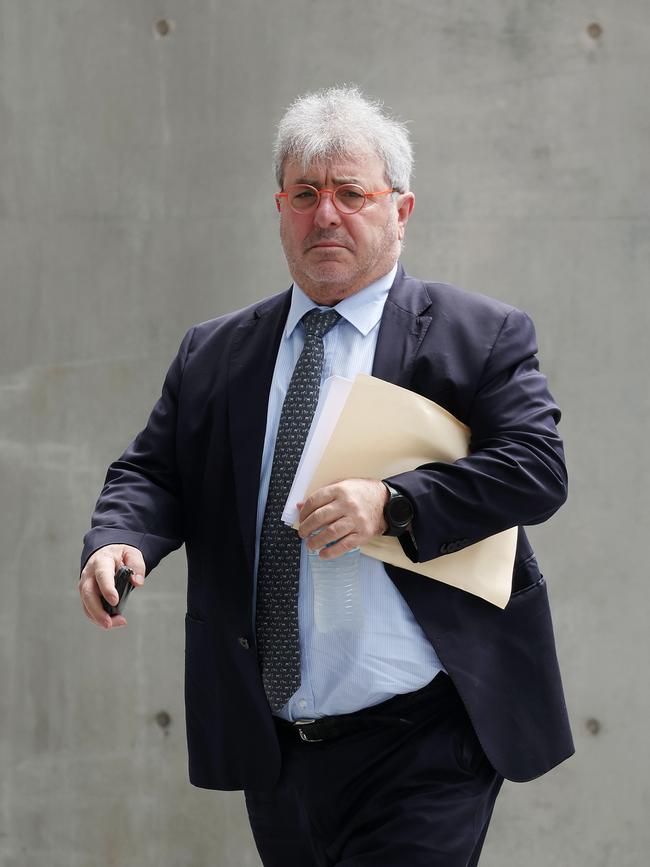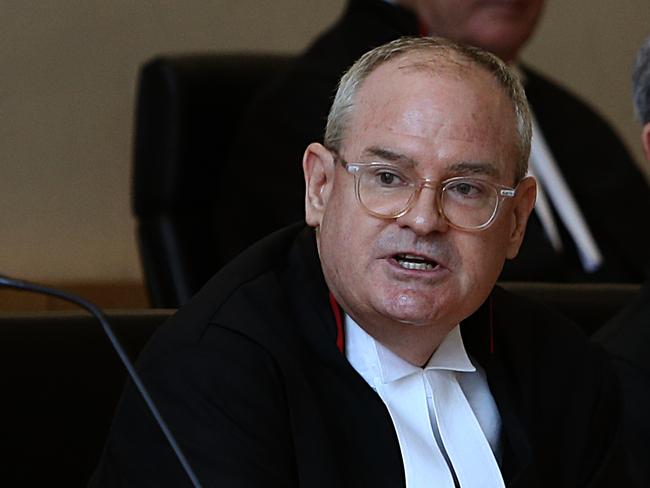Veteran barrister’s legal licence gone for good
A bankrupt veteran Queensland barrister awaiting trial on a corruption charge related to former Ipswich mayor Paul Pisasale has lost the battle to get his legal licence back, with a scathing judgment handed down.

Police & Courts
Don't miss out on the headlines from Police & Courts. Followed categories will be added to My News.
A bankrupt veteran Queensland barrister awaiting trial on a corruption charge related to former Ipswich mayor Paul Pisasale, has lost the battle to get his legal licence back.
In a scathing judgment handed down on Monday, the barrister was heavily criticised for not paying tax on more than $1m of earnings from the past three years, and going to China when he was supposed to be in court.
Salvatore “Sam” Di Carlo’s practising certificate was suspended by the Queensland Bar Association on August 28 after it deemed him “not a fit and proper person”.
During a multi-day Queensland Civil and Administrative Tribunal (QCAT) hearing over the past few months, Mr Di Carlo – who has been a barrister for 33 years – applied to put the decision to revoke his licence on hold.

Barristers Hamish Clift and Patrick McCafferty KC, acting for the Bar Association in the hearing, gave a scathing assessment of Mr Di Carlo’s situation during these hearings.
“Mr Di Carlo is a bankrupt barrister who has failed to pay any substantial tax in recent years, who has been previously convicted of contempt, who has unresolved disciplinary charges, and who has repeatedly failed to make appropriate disclosures to the Association,” Mr Clift said.
The court was told earlier this week that Mr Di Carlo is alleged to have an outstanding debt to the Australian Taxation Office of $398,329.
Mr McCafferty said during the hearings that Mr Di Carlo had made “zero attempt” to pay his tax debt, and offered no proper explanation as to why he hadn’t paid tax in years.
Di Carlo is facing a trial in the District Court on a single charge of giving or offering a benefit to a public officer, and two counts of perjury.
Di Carlo’s barrister Dan O’Gorman SC argued that pausing the suspension of his client’s practising certificate would allow him to earn an income to fund his criminal defence and pay back creditors.
Mr O’Gorman further argued that Mr Di Carlo’s current clients would be significantly impacted if the suspension of his practising certificate stood.
“He has intimate knowledge of a lot of these matters, in a way that is the reverse of the normal – often the solicitors would have the intricate knowledge of the background and the facts, but here it is Mr Di Carlo.”
In his decision on Monday, Justice Thomas Bradley made scathing remarks regarding Di Carlo skipping the country a few days before he was due back in court.

“By leaving the country shortly before the enforcement hearing, the applicant showed a public disrespect for the District Court and its processes. His apparent lack of understanding and appreciation of the nature and effect of his conduct marks his character,” he said.
Justice Bradley also didn’t hold back over Di Carlo’s tax debts.
“He knew the money he spent on any other thing was money he was denying the ATO. This was wrong. At best this was irresponsible or reckless,” he said.
Justice Bradley also referenced Di Carlo’s attempted explanations for his conduct.
“The applicant was unable to explain his conduct or identify what he would actually do differently in the future,” the QCAT judgment read.
“He offered nothing in respect of his history of failures to disclose suitability matters to the [Bar] Association. He had ‘no idea’ what he was thinking when he flew to China a few days before the summons required him to appear in the District Court.
“He could not ‘begin to think’ why he did not make a payment arrangement with the ATO. In the end, the applicant described his conduct as ‘stupidity’.”
During the final hearing in the matter last week, Di Carlo read an apology to the court, saying that the last seven years “seemed to be a rollercoaster of events constantly”.
In reaching his decision on Monday to refuse Di Carlo’s application for review of the Bar Association’s decision not to renew his practising certificate, Justice Bradley referenced Di Carlo’s own words before making a final scathing assessment.
“The applicant continues to be subject to criminal charges, which were first pressed against him in 2017. So, he continues to be on the ‘rollercoaster’ he has been riding for about seven years,” he found.
“The courts are experienced in assessing the genuineness of human sentiments including remorse and resolutions to make amends. The courts make these assessments every day in sentencing offenders.
“The conduct of a person is the surest guide. Words unsupported by action leave unproven the genuineness of an expressed desire to change. The applicant’s recent remorse has this difficulty.”


